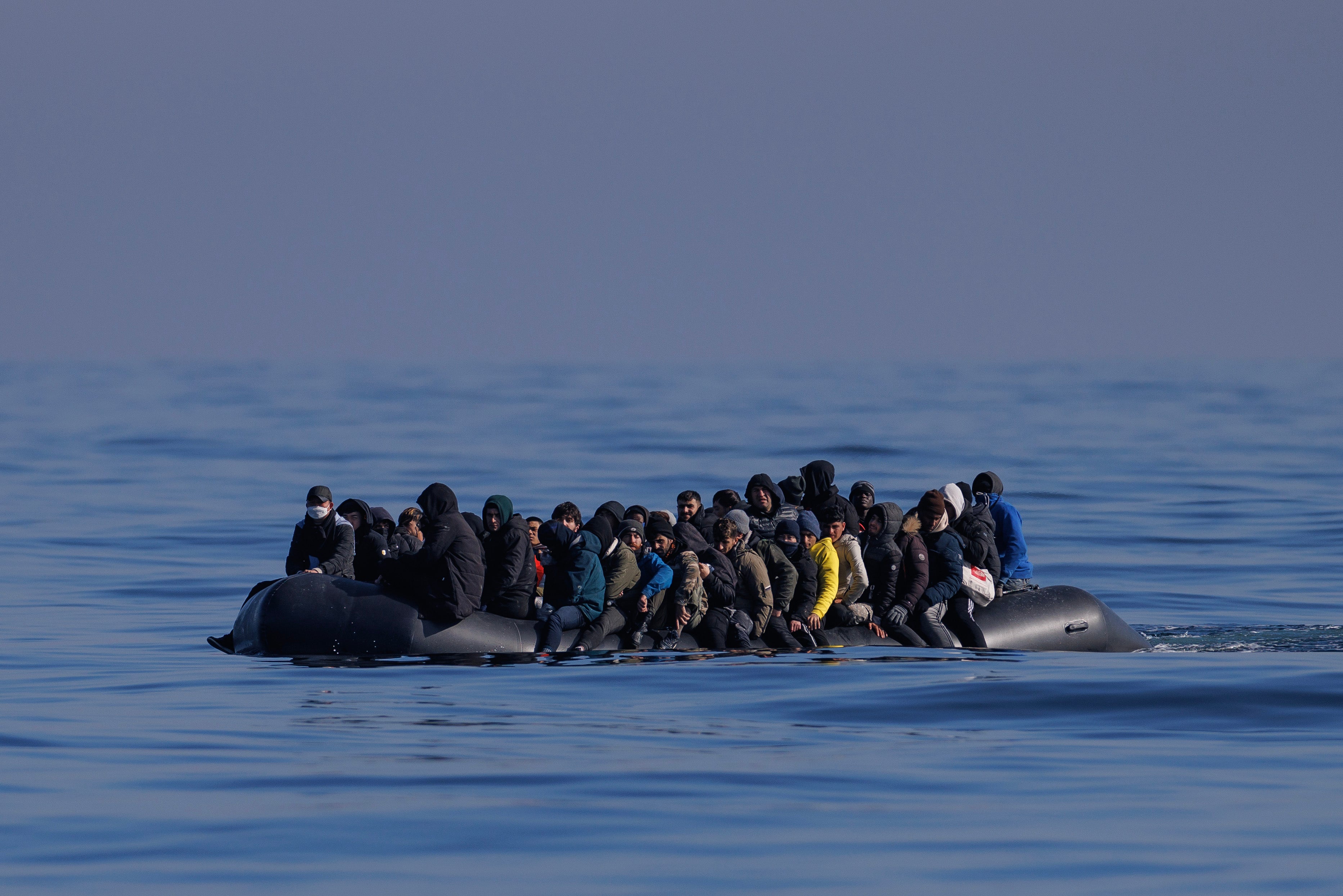Why has Yvette Cooper refused to set a deadline on small boats?
Despite being asked repeatedly, the home secretary has declined to set out a timeline for when the public would see a fall in the number of dangerous Channel crossings. Kate Devlin looks at the pitfalls she is trying to avoid


Yvette Cooper has described the number of people arriving in the UK on small boats as “too high”. But she has also steadfastly refused to set a deadline for when voters might see the figures fall.
Why?
Precedence. Or, perhaps, fear. Fear, that is, of what happened to her predecessor. Rishi Sunak, when he was prime minister, staked his reputation on being able to cut the number of small boat crossings into Britain. In fact, he even said that he would stop the boats. It was one of his five key pledges to the public he said they could judge him upon in a general election. And they did. Mr Sunak’s administration lost in July in what was a landslide defeat to Labour.
As time went on, the pledge to stop the boat began to be seen as less of a slogan and more of a millstone hanging around Mr Sunak’s neck. Every day that there were reports of more migrants landing off the British coast was a reminder that he had failed to keep his promise. Ironically, at the same time there was, in terms of numbers at least, a much bigger immigration story happening on his watch. While it would not be revealed until later, at the same time as Mr Sunak was trying and failing to stop the boats, his government was letting in hundreds of thousands of people through legal migration.

It is complex
Ms Cooper’s plans to cut the crossings don’t involve one big idea like the Tory government’s Rwanda plan. That, if you remember, said that everyone who arrived in Britain on a small boat would be removed to the African state of Rwanda on a one-way ticket. They would not be able to return to Britain, even if they were found to be genuine asylum seekers.
Instead, Ms Cooper’s plans, and those of the prime minister Keir Starmer, can be summed up as ‘stop the gangs’ rather than ‘stop the boats’. The prime minister and his home secretary want to smash the international smuggling rings that every day take desperate people and try to bring them to Britain on one of the most dangerous sea routes in the world. The trade is lucrative, however, meaning that in recent years, it has become more and more industrialised.
The government is also seeking to do a series of international deals to help return people home if they come here in a small boat and don’t qualify for asylum. The government has removed nearly 13,500 migrants since the election, the highest rate since 2019.
The problem is that nearly 35,000 people have arrived in Britain on small boats so far this year, up 20 per cent on this time last year but down 22 per cent on 2022.
Factors beyond her control
One problem the home secretary faces is, of course, a volatile world that she cannot control. The recent events in Syria and South Korea show just how things can change in other countries in an incredibly short period of time. As more and more parts of the world also start to experience the negative effects of climate change, more and more migrants are expected to be displaced from their homes, and a proportion of those, it is expected, will start to try to make their way to the UK. In short – even if Yvette Cooper had given the public a deadline for when they would see small boat numbers fall, she might not have been able to keep it.
Join our commenting forum
Join thought-provoking conversations, follow other Independent readers and see their replies
Comments
Bookmark popover
Removed from bookmarks